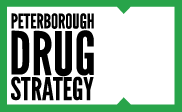Understanding Opioids
Opioids and Overdose/Poisoning
What are opioids?
Opioids are a family of substances that have pain relieving effects. Opioids are depressant drugs, which means that they slow down basic functions in the body like heart rate, blood pressure and breathing. They can also produce euphoria, an experience of pleasure. Opioids can be either natural or synthetic, and are available through both prescription and unregulated sources. Examples of opioids include:
- Fentanyl
- Heroin
- Hydrocodone (Vicodin)
- Hydromorphone (Dilaudid)
- Oxycodone (OxyContin)
- Morphine
- Methadone
- Percodan (Percocet)
- Codeine
What is an overdose?
“Overdose” is a term used to describe when a person consumes too much of a substance (or combination of substances) than the body can handle, and basic life functions (e.g. breathing) cannot be controlled. It implies that a person knows what the dose of the substance is and chooses to take too much. In Peterborough, and across Canada, the street drug supply is unpredictable and people are often unaware of how much of a substance, or what substance they may be consuming. Many health agencies are now using “drug poisoning” instead of overdose to more accurately reflect the current context.
Anyone can overdose – those with lots of experience using opioids, those who are new to using opioids, and everyone in-between.
Learn more through Peterborough Public Health.
Understanding Opioids Training and Resources
Understanding Opioids Training and Resources
PDS partnered with Peterborough Public Health to offer the workshop Understanding Opioids: Methods for Prevention & Response. This workshop is no longer running, but the slide deck is available here.
Online Opioid Poisoning Response Training
If you are interested in an online opioid poisoning response training, the following are available for free:
First Aid for Opioid Poisoning Emergencies 1.0 (Canadian Red Cross)
Opioid Poisoning Response Training E-Learning Course (St. John Ambulance)
Overdose Prevention, Recognition and Response Training (Toronto Public Health)
Other Opioid-Related Resources
You may also want to check out the following resources:
Opioids (Peterborough Public Health)
Opioid Harms Data Portal (Peterborough Public Health)
Drug Reporting Tool (Peterborough Public Health)
Opioids and Naloxone Programs (Haliburton, Kawartha, Pine Ridge District Health Unit)
How to Access Naloxone in Peterborough (PDS and PPH, 2023)*
Where Individuals in Ontario Can Access Naloxone in Their Community (Government of Ontario)
*All PDS authored resources may be utilized or adapted to the needs of individual groups or agencies without permission. Please include reference to the PDS as the original author and the original year of publication.
PDS Opioid Resources
PDS Factsheets
- Opioid Fact Sheet* (PDS, 2018)
- Fentanyl Fact Sheet* (PDS, 2018)
- Naloxone Myths Fact Sheet* (PDS, 2018)
- Treatment Fact Sheet* (PDS, 2019)
Opioid Response Protocols in Workplaces
- Developing an Opioid Overdose Response Protocol: Information for Workplaces* (PDS, 2018)
- Post this sign in your bathroom to remind staff, clients or patrons how to identify an overdose and that naloxone is available onsite* (PDS, 2018) High Resolution | Low Resolution
How to Access Naloxone
- How to Access Naloxone in Peterborough (PDS and PPH, 2023)*
- Where Individuals in Ontario Can Access Naloxone in Their Community (Government of Ontario)
*All PDS authored resources may be utilized or adapted to the needs of individual groups or agencies without permission. Please include reference to the PDS as the original author and the original year of publication.
Get a Naloxone Kit
Did you know that you can acquire a free naloxone kit? If you, someone you know, or your workplace is in need of a free naloxone kit, you can locate an available kit near you.
Need Help?
Peterborough Public Health has put together a list of local resources and places to go for help related to substance use issues. Click the icon above to learn more.
